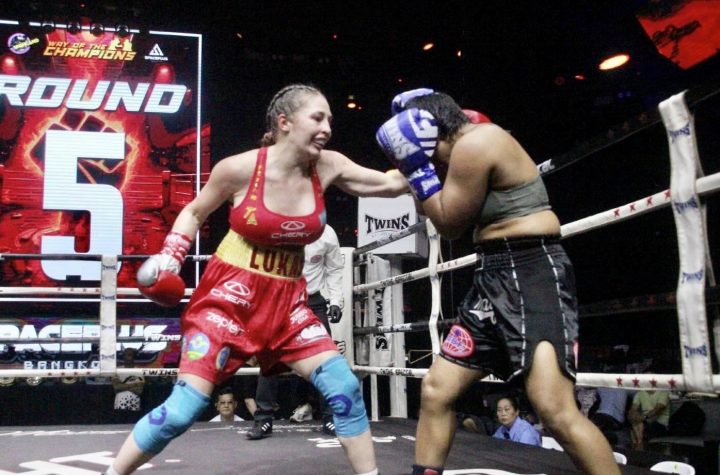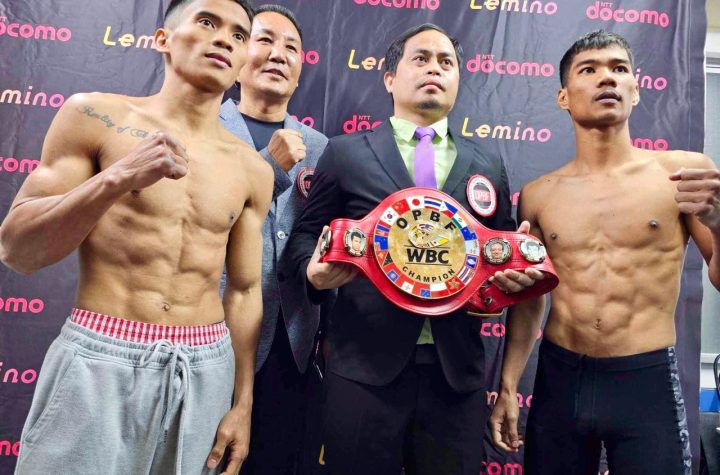
The life of a Muay Thai practitioner is filled with uncertainties, the kind that ONE Flyweight Muay Thai World Champion Sam-A Gaiyanghadao has experienced first-hand.
That is why the icon of “the art of eight limbs” has always tried to broaden his horizons to equip him with the knowledge to meet many challenges inside and outside the ring.
The 35-year-old – who will face Jonathan “The General” Haggerty in the main event of ONE: FOR HONOR this Friday, 3 May – never lost sight of the importance of education, despite a career in the ring that has seen him rack up more than 400 professional bouts.
Sam-A began competing when he was 9 in his native Buriram. The young prodigy quickly rose through the ranks, but his arduous training and competition schedule took a toll on his studies.
At first, his schooling had to fit around his time in the gym.
“I ended up changing schools a lot,” he remembers.
“I’d try different schools, hoping it would be better for my career. Some were closer to the gym, others had a better schedule. It never worked out, so I ended up starting my equivalency instead.”
With a fully fledged career and a steady income, Sam-A could have just left his education behind, but the soon-to-be World Champion never considered that as an option.
“Even though it was very difficult, I made sure to stick with it. I knew it would be important later in life in case I wanted to go to university, but also just to set a precedent,” he explains.
As fate would have it, after capturing his first Lumpinee Stadium Muay Thai World Title, Sam-A’s career suddenly ended. The 19-year-old left the sport he had devoted the past decade to and went to find work as a menial laborer in Bangkok.
After a year enduring the tough life of a construction worker, Muay Thai called Sam-A back home – but his experience had changed him for life.
If his career in the ring unexpectedly ended again, he wanted something to fall back on so he did not have to struggle in poverty.
When he was not hard at work honing his martial arts skills, he was in the classroom. His dedication ended up paying off in a big way, and even gave him some lessons he could use as an athlete.
“When I returned home, I completed my equivalency and enrolled in a polytechnical school together with my wife,” he says.
“She supported me going back to school. We did a computer science program – it was just on the weekends for an associate’s degree. I had always wanted to study, to learn. When you have a degree, it is yours, it is something tangible you have.
“You have to think about the bigger picture, about the skills you use in your day to day life. You might not realize it, but there are skills you get from going to school that you can apply to your day to day life.
“Maybe it’s not specific to what you learned, but those practical skills, like discipline, are passed over to other areas in your life.”
With the money he earned through his bouts, Sam-A built a small convenience store for his wife in her village. Those skills she obtained through her education have had a direct impact on how she runs a successful business.
As their family grew, the business prospered, and Sam-A went from strength to strength in the ring, their education also helped them to manage their money and secure their future.
Now they are in a position where they can make sure their children have access to education so that they can set themselves up for success in their adult life.
One of Sam-A’s biggest goals is to steer his girls down a path that will set them up to pursue whatever profession they want to in the future, and never have to struggle like he did before he became one of the world’s greatest martial artists.
“I want my daughters to pursue higher education,” he says.
“I won’t put pressure on them, but I will teach them that they should aim for a bachelor’s degree, and if they can take their studies farther, I will send them as far as they can go.”
“Lots of people study and don’t end up working in that field. It doesn’t matter though, education is a skill and an experience. It is part of life and that degree, it will never disappear.”





More News
Jafarov, Lukas, Purcell Win
Fajardo, Simri Make Weight
Charr, Pulev, Lambert in Bulgaria